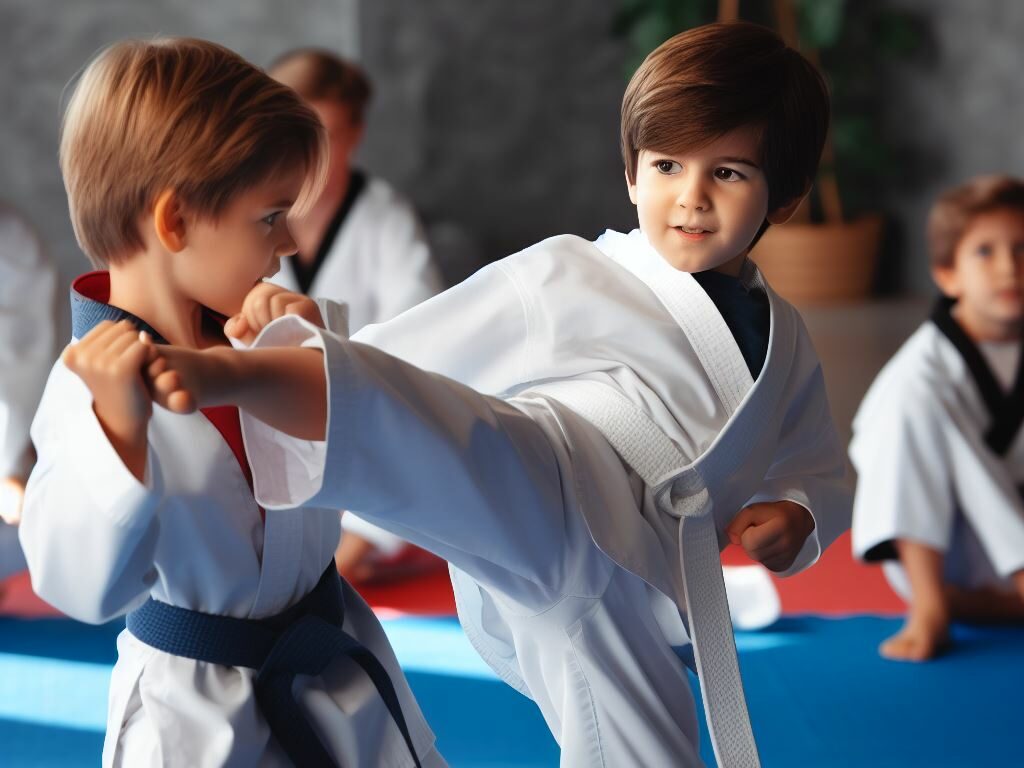Taekwondo, the Korean martial art known for its powerful kicks and disciplined training, is a popular choice for individuals of all ages. But if you’re considering enrolling your child or yourself in Taekwondo, you might be wondering, “What age can you start Taekwondo?” In this comprehensive guide, we will explore the ideal starting age for Taekwondo, its numerous benefits, and the journey it offers to practitioners.
The Ideal Age to Start Taekwondo
Table of Contents
Taekwondo is a martial art that welcomes participants of various ages. While there is no one-size-fits-all answer to the question of when to start, here are some general guidelines:
1. Preschool Age (3-5 years):
At the preschool age, children can begin to participate in introductory Taekwondo classes. These classes are designed to be fun and engaging, focusing on developing coordination, listening skills, and building a foundation for future martial arts training. Instructors use age-appropriate teaching methods to make learning enjoyable for young children.
2. Elementary School Age (6-11 years):
Children in elementary school are at an excellent age to start Taekwondo. They are old enough to follow instructions and develop their physical and mental skills. Taekwondo can help improve focus, discipline, and self-confidence in children at this stage.
3. Teenagers and Adults (12+ years):
Teenagers and adults can start Taekwondo at any age. Many people begin their Taekwondo journey as teenagers or even in adulthood. Taekwondo offers benefits such as physical fitness, self-defense skills, stress relief, and a sense of community that are valuable at any age.

Benefits of Starting Taekwondo Early
Starting Taekwondo at a young age can provide several advantages:
1. Character Development:
Taekwondo emphasizes values such as discipline, respect, and perseverance. Starting early helps instill these qualities in children from a young age.
2. Physical Fitness:
Taekwondo promotes physical fitness, including strength, flexibility, and cardiovascular endurance. Starting early can establish a healthy lifestyle habit.
3. Self-Confidence:
As children progress through Taekwondo training and achieve belt ranks, their self-confidence grows. Early starters often develop a strong sense of self-assuredness.
4. Self-Defense Skills:
Taekwondo teaches practical self-defense techniques. Learning these skills early can provide a sense of security for both children and their parents.
5. Social Interaction:
Taekwondo classes provide an opportunity for children to interact with peers and make new friends, helping with social development.
Conclusion
In conclusion, the ideal age to start Taekwondo varies based on individual preferences and goals. Taekwondo is a martial art that welcomes participants of all ages, from preschoolers to adults. Starting early offers the advantage of character development, physical fitness, and self-confidence, but it’s never too late to begin your Taekwondo journey. With qualified instructors and a positive learning environment, Taekwondo can be a rewarding experience for everyone.
Frequently Asked Questions
- Can I start Taekwondo as an adult with no prior experience?
- Yes, you can start Taekwondo as an adult with no prior experience. Many do and find it to be a rewarding journey.
- Is there a maximum age to start Taekwondo?
- There is no maximum age for starting Taekwondo. People of all ages can begin their training.
- What should I look for in a Taekwondo school for my child?
- When choosing a Taekwondo school for your child, look for qualified instructors, a positive and respectful atmosphere, and age-appropriate training methods.
- How long does it take to earn a black belt in Taekwondo?
- The time it takes to earn a black belt in Taekwondo varies depending on factors such as training frequency and individual progress. On average, it can take several years of dedicated training.
- Is Taekwondo safe for young children?
- Taekwondo can be safe for young children when taught by experienced and qualified instructors who understand the unique needs of young learners.

